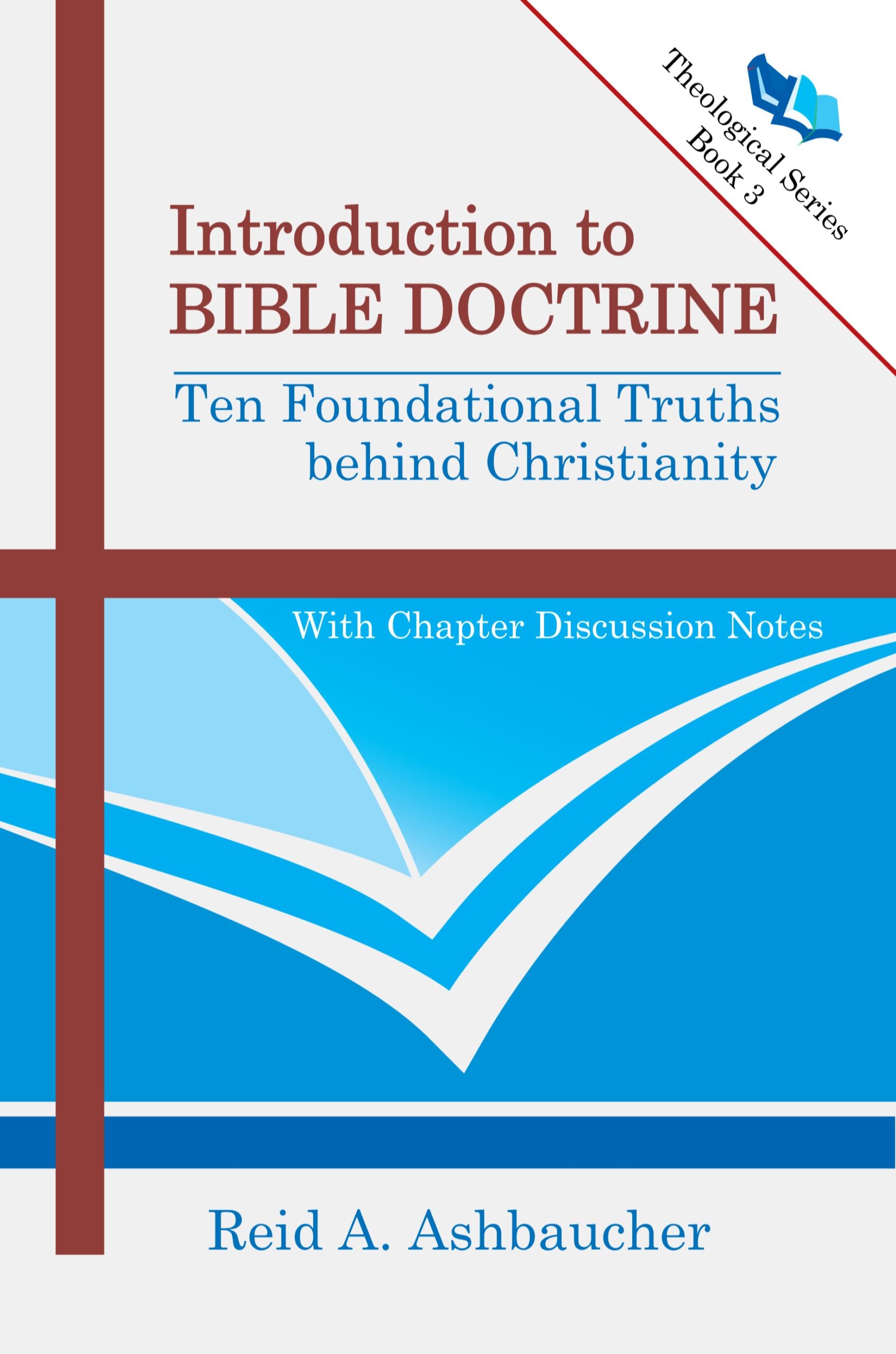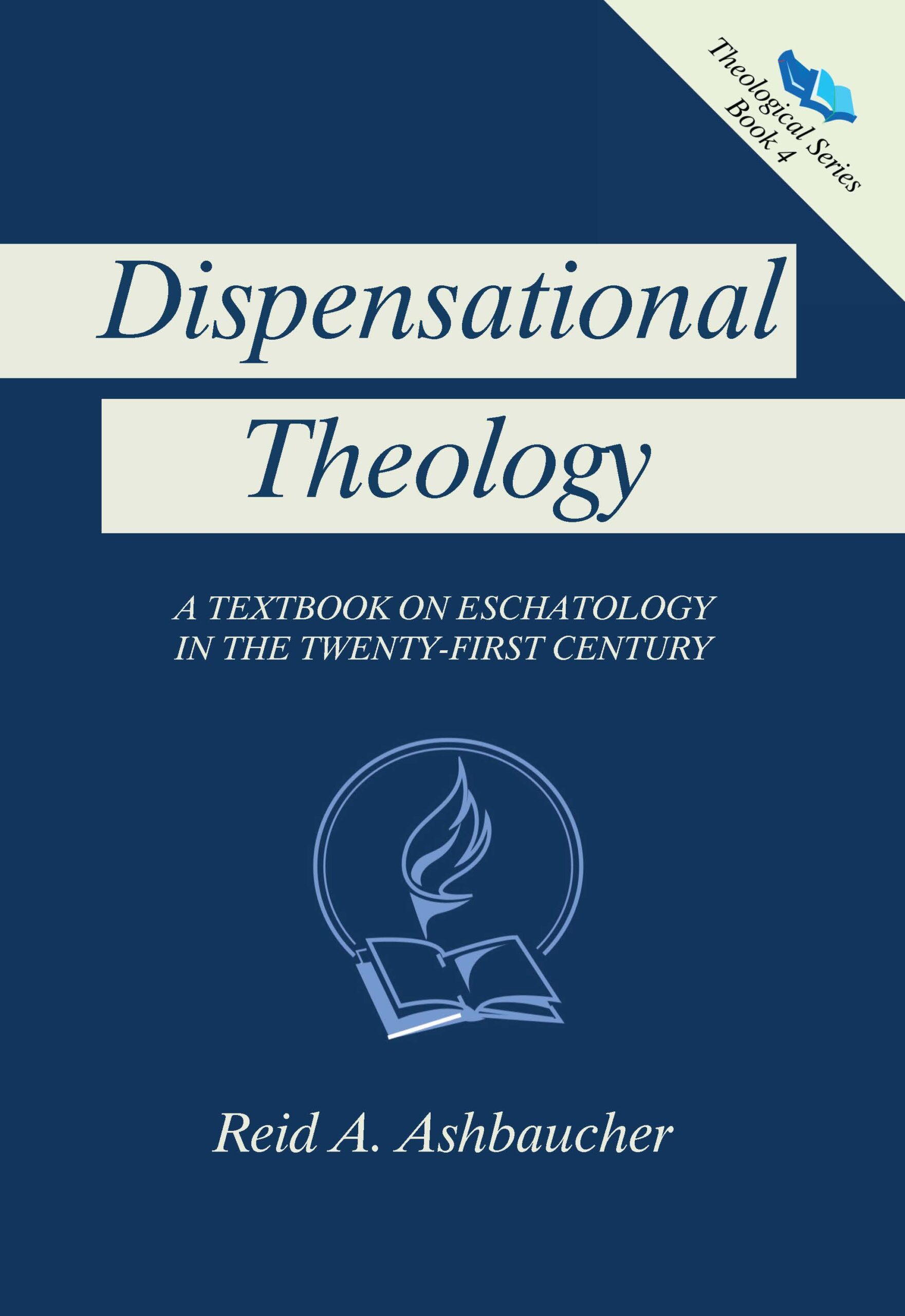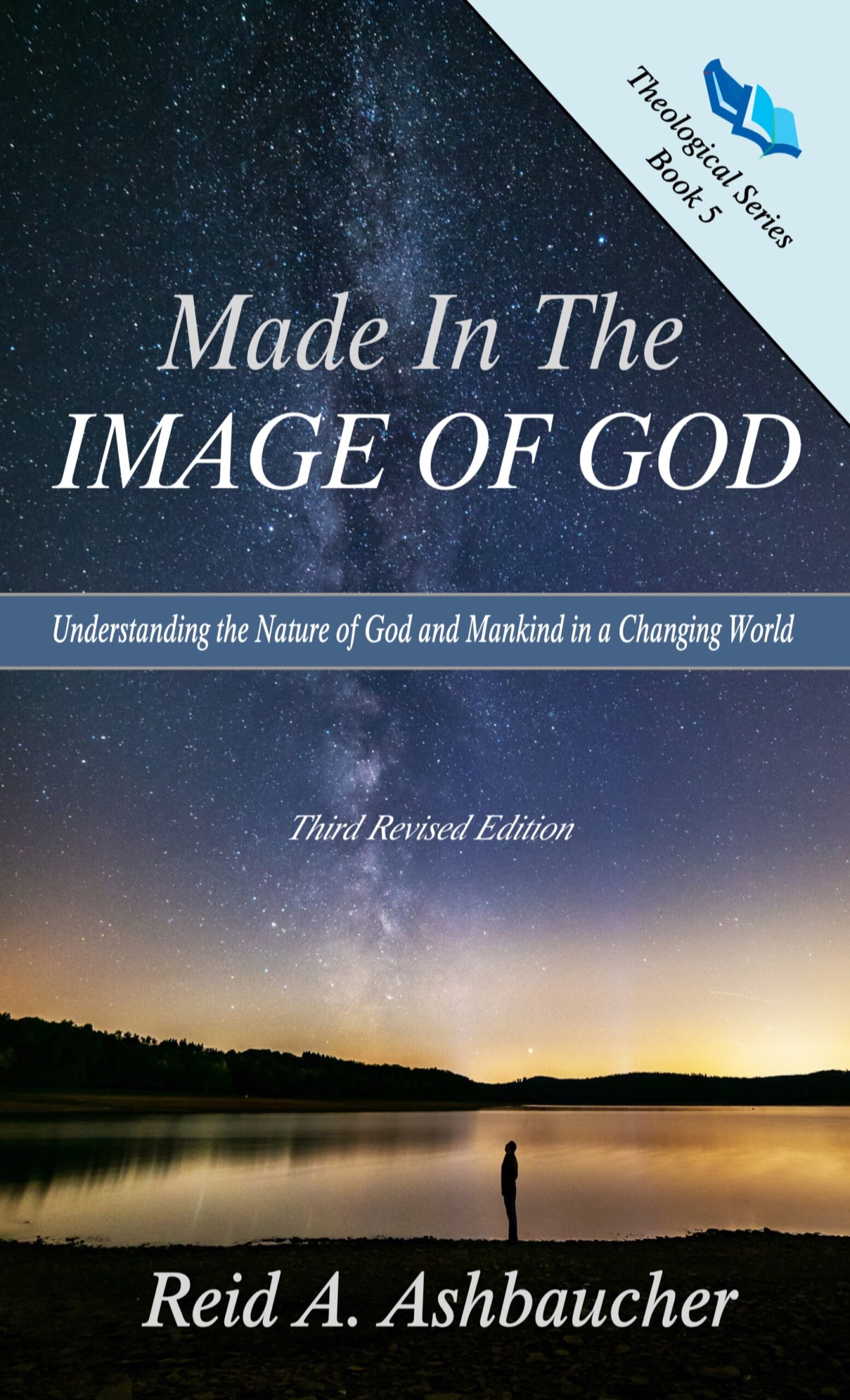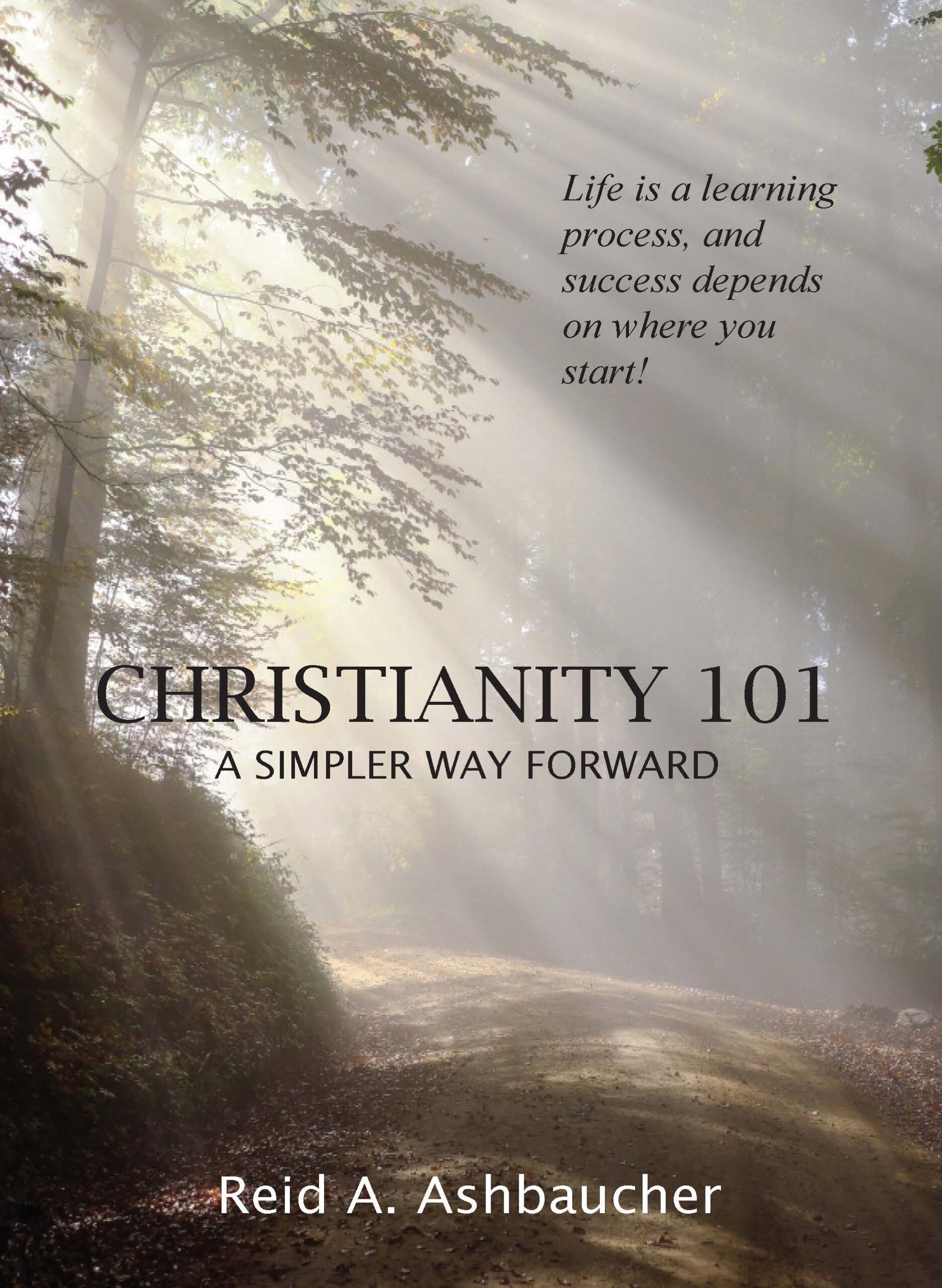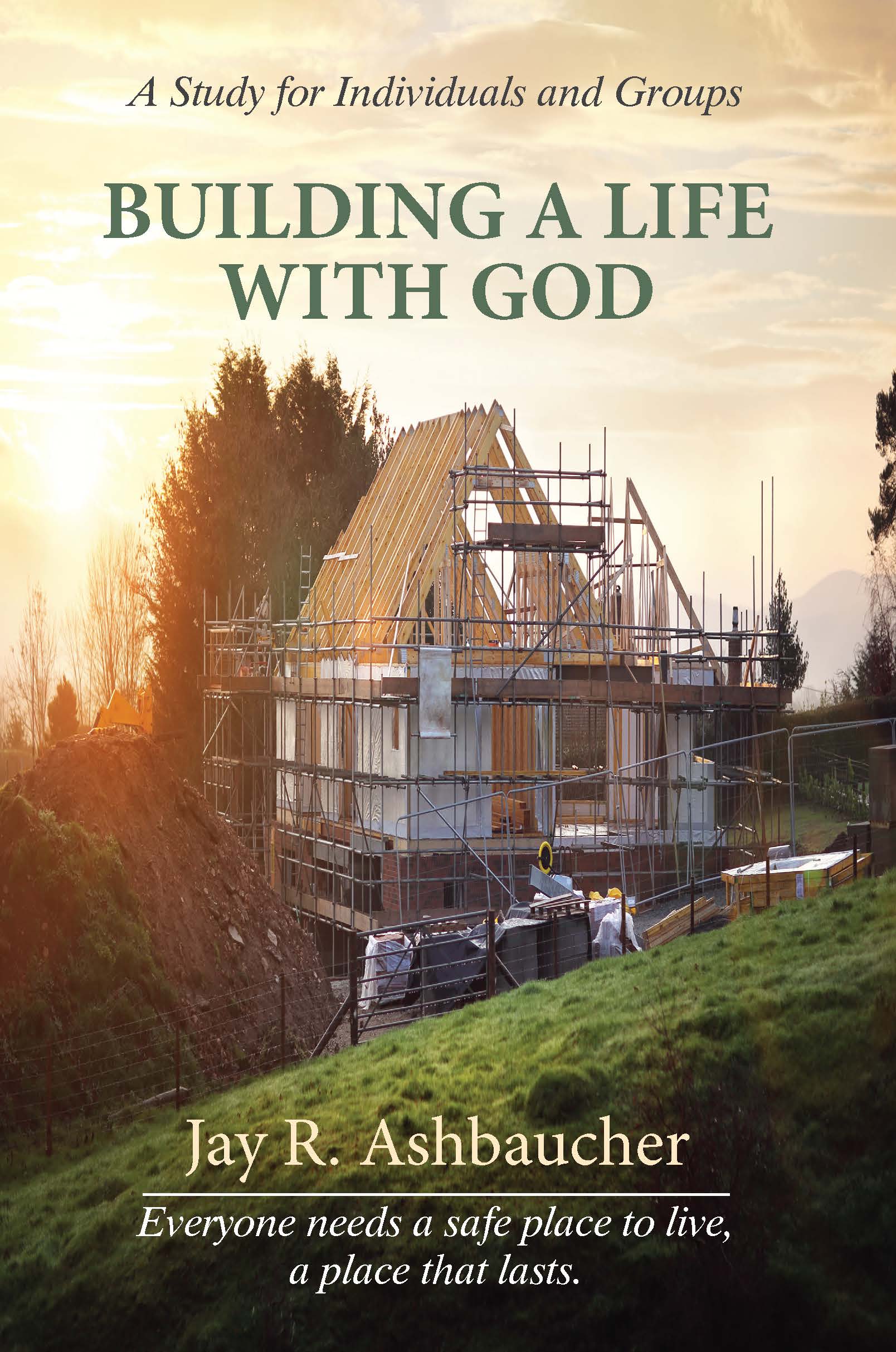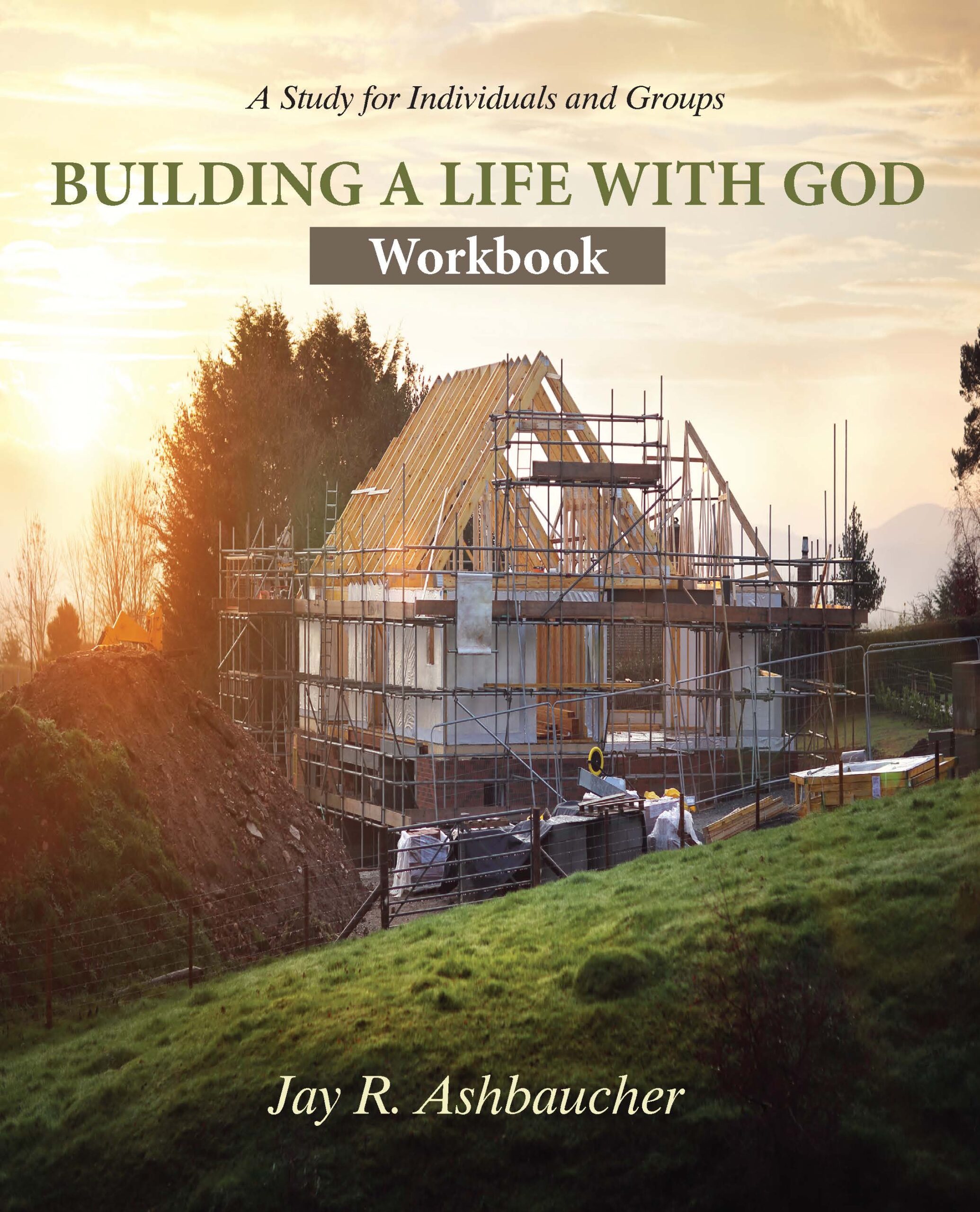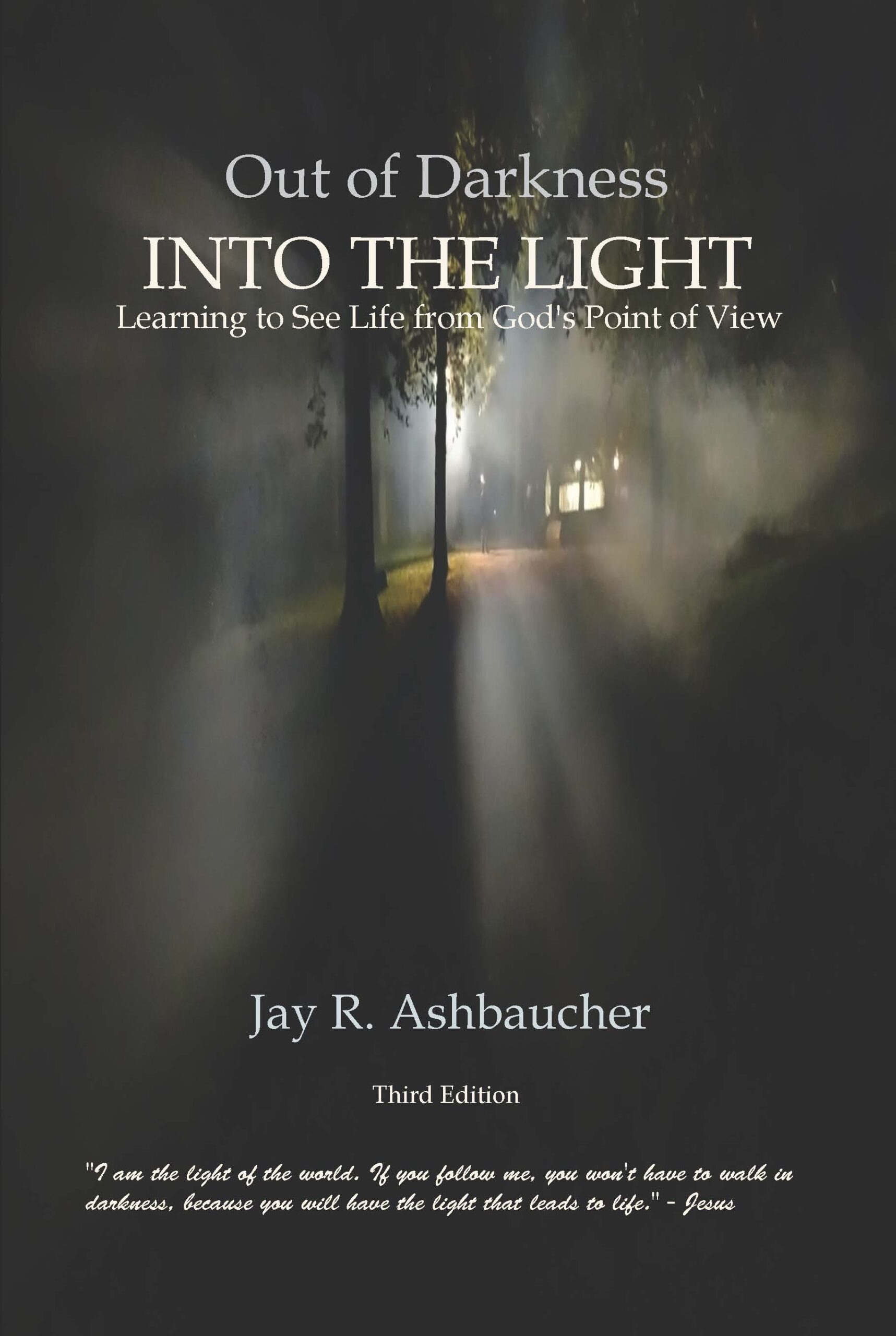Author: Reid Ashbaucher | Date of Writing: April 2009
The Theology of Karl Barth
Introduction
Karl Barth, who is he? What is his theology? And what has been his influence on today’s pastors and theologians? To these questions this work will be focused on in hopes to establish a better understanding of modern ChristianAccording to the Bible, Christians are those that put their faith in Jesus Christ and follow him as Lord and King of their lives. To reject that Jesus is not equal in nature with God or reject the teaching of the Trinity of God would forfeit anyone's claim to be called Christian. (Acts 11:26, 26:28;... More thought outside the Fundamental and Evangelical realms in the Twenty-First Century.
Karl Barth (May 10, 1886 – December 10, 1968) (pronounced “Bart”) was a Swiss Reformed theologian whom critics hold to be among the most important ChristianAccording to the Bible, Christians are those that put their faith in Jesus Christ and follow him as Lord and King of their lives. To reject that Jesus is not equal in nature with God or reject the teaching of the Trinity of God would forfeit anyone's claim to be called Christian. (Acts 11:26, 26:28;... More thinkers of the 20th century; Pope Pius XII described him as the most important theologian since Thomas Aquinas. Born in Basel, Barth spent his childhood years in Bern. From 1911 to 1921 he served as a Reformed pastor in the village of Safenwil in the canton Aargau. In 1913 he married Nelly Hoffmann, a talented violinist. They would have four sons and a daughter. Later he was a professor of theology in Göttingen (1921–1925), Münster (1925–1930) and Bonn (1930–1935) (Germany). While serving at Göttingen he met Charlotte von Kirschbaum, who became his long-time secretary and assistant and played a large role in the writing of his epic the Church Dogmatics.[6] He had to leave Germany in 1935 after he refused to swear allegiance to Adolf Hitler. Barth went back to Switzerland and became a professor in Basel (1935–1962).1
Karl Barth led a theologicalAny person or subject that relates or is tied to the Study of God is considered theological. Example: A "theological student" is a person that studies the subject matter of God. A theological viewpoint is an opinion about God based on a persons interpretation of the Scriptures or Bible. revolt against liberal theology of the nineteenth century in the form of the new Dialectical theology in which he rallied a group of young theologians in the early 1920s.2 It was Kierkegaard of the nineteenth century that “fathered” the school of Dialectical theology just fifty years earlier.3 Barth and others were influence in their theology by Ritschlian Wilhelm Herrmann, a professor of nineteenth-century liberal theology, who taught him that ChristianAccording to the Bible, Christians are those that put their faith in Jesus Christ and follow him as Lord and King of their lives. To reject that Jesus is not equal in nature with God or reject the teaching of the Trinity of God would forfeit anyone's claim to be called Christian. (Acts 11:26, 26:28;... More faith was not grounded in history or being parasitical of other sciences.4 Even though Barth rejected liberal theology he was affected by and maintained some of its foundational teachings.
Because Karl Barth’s theology has roots in past liberal thinking and perhaps in the new ChristianAccording to the Bible, Christians are those that put their faith in Jesus Christ and follow him as Lord and King of their lives. To reject that Jesus is not equal in nature with God or reject the teaching of the Trinity of God would forfeit anyone's claim to be called Christian. (Acts 11:26, 26:28;... More existentialism that replaced the Dialectical theology of the 20 and 30s,5 Barth’s 30 year work in the form of his book Church Dogmatics was considered varied and complex leaving open its impact on twentieth-century ChristianAccording to the Bible, Christians are those that put their faith in Jesus Christ and follow him as Lord and King of their lives. To reject that Jesus is not equal in nature with God or reject the teaching of the Trinity of God would forfeit anyone's claim to be called Christian. (Acts 11:26, 26:28;... More theology and how unprecedented it really was.6 Thomas F. Torrance of Scotland assessed Barth and his theology this way:
In Karl Barth’s great life-work, the thirteen volumes of his Church Dogmatics, evangelical and reformed theology of the Word is given its most massive and formidable expression within the whole context of the growth and development of ChristianAccording to the Bible, Christians are those that put their faith in Jesus Christ and follow him as Lord and King of their lives. To reject that Jesus is not equal in nature with God or reject the teaching of the Trinity of God would forfeit anyone's claim to be called Christian. (Acts 11:26, 26:28;... More theology in ancient and modern times, in the East as well as in the West. Whether or not contemporary theology agrees with Barth, it cannot escape the questions he has raised, or avoid dealing with the situation he has created. If theologicalAny person or subject that relates or is tied to the Study of God is considered theological. Example: A "theological student" is a person that studies the subject matter of God. A theological viewpoint is an opinion about God based on a persons interpretation of the Scriptures or Bible. advance is to be made, it will not be by passing him by or going round him, but only by going through and beyond him—and yet since Barth’s theology is so deeply integrated with the whole history of ChristianAccording to the Bible, Christians are those that put their faith in Jesus Christ and follow him as Lord and King of their lives. To reject that Jesus is not equal in nature with God or reject the teaching of the Trinity of God would forfeit anyone's claim to be called Christian. (Acts 11:26, 26:28;... More dogma, any attempt to go through and beyond him must ask whether it may not be trying to leave the ChristianAccording to the Bible, Christians are those that put their faith in Jesus Christ and follow him as Lord and King of their lives. To reject that Jesus is not equal in nature with God or reject the teaching of the Trinity of God would forfeit anyone's claim to be called Christian. (Acts 11:26, 26:28;... More Church behind. It may well be that Barth’s ultimate influence upon the whole Church will be comparable with that of Athanasius the Great. Meantime, our immediate problem in getting to grips with Karl Barth is that he has moved so far ahead of us, that we have still a long way to travel even to catch up with him! 7
Barth’s Theology
There are many points to Barth’s theology that could be discussed, but in this work we will limit ourselves to two conceptsThe term CONCEPT used on this website is not referring to abstract ideas of the mind. It is referring to truths that are organized by subject matter or issues and supported by the Scriptures through direct statements or good reasoning. (A concept stated in one of my books.) Scriptural evidence suppo... that I believe have influenced today’s ChristianAccording to the Bible, Christians are those that put their faith in Jesus Christ and follow him as Lord and King of their lives. To reject that Jesus is not equal in nature with God or reject the teaching of the Trinity of God would forfeit anyone's claim to be called Christian. (Acts 11:26, 26:28;... More religious leaders to follow a path that is outside of Gods thinking.
Barth’s Concept of the Word of God
David Allen gives us a perspective of Barth’s view of the Word of God; “The Scripture becomes the Word of God for Barth when it is taken and used by God to speak to us and when it is heard by us as the witness to divine revelation. Thus, for Barth, God’s speech by way of Scripture is, according to Wolterstorff, ‘presentational, rather than authorial, speech.’ Revelation is originally and directly the word of God, while the Bible and preaching are derivatively and indirectly so according to Barth.”8
Another perspective given by Francis Schaeffer reveals a confirmation to this line of thinking about Barth’s view on the “Word.”
Karl Barth held until the end of his life the “higher critical” views of the Bible which the nineteenth-century liberal theologians held, and thus he viewed the Bible as having many mistakes. But he then taught that a religious “word” breaks through from it. This was the theologicalAny person or subject that relates or is tied to the Study of God is considered theological. Example: A "theological student" is a person that studies the subject matter of God. A theological viewpoint is an opinion about God based on a persons interpretation of the Scriptures or Bible. form of existentialism and the dichotomy. In other words, the existential methodology was applied to theology. This meant that theology had now been added to all the other things which had been put into the area of non-reason.9
It is Schaeffer’s view that Karl Barth was the catalyst of “theologicalAny person or subject that relates or is tied to the Study of God is considered theological. Example: A "theological student" is a person that studies the subject matter of God. A theological viewpoint is an opinion about God based on a persons interpretation of the Scriptures or Bible. existentialism” as he developed it on the Word of God.
In addition to the secular existentialism of Sartre, Camus, Jaspers, and Heidegger, Kierkegaardianism brought forth another form of existentialism: the theologicalAny person or subject that relates or is tied to the Study of God is considered theological. Example: A "theological student" is a person that studies the subject matter of God. A theological viewpoint is an opinion about God based on a persons interpretation of the Scriptures or Bible. existentialism which began with Karl Barth (1886-1968), especially with his first commentary (1919) on the New TestamentThe New Testament is a collection of 27 books, all written in Greek within the first century A.D. Twenty three of these books were written by the Apostles of Jesus Christ, two were written by Dr. Luke a Christian medical doctor who traveled with the Apostle Paul, and two books were written by James ... More book entitled The epistle to the Romans. We must have profound admiration for Karl Barth in that he, as a Swiss teaching in Germany, made a public stand against Nazism in the Barman Declaration of 1934. For many years he taught at the University of Basel, was a prolific writer and has had a profound effect on the general flow of theology and intellectual thought in this generation. But in his theology Karl Barth made his own kind of dichotomy and brought the existential methodology into theology.10
In the end, all of this simply means in practical terms is, “the Bible contains little of real value in the realm of history, morals, and religion.”11 Barth believed that God could only be known by direct revelation of God. This means that Jesus is the “Word of God” to us through his living a life on earth; the ScripturesThe Scriptures, as spoken of on this site, represents the 66 books found in the Protestant Bible, with 39 books in the Old Testament and 27 books found in the New Testament. It is our view that these books were written between 1446 BC and 96 AD, representing a time span of about 1,500 years, by the ... has very little to do with being the “Word of God.” “In such a view, affirms Barth, the Bible usurps the place which belongs rightfully to Christ alone. Whereas the Bible ought to be only an instrument leading men to Christ, it has become the object and center of faith.”12 We shall see later how this view plays out in today’s religious leadership.
Barth’s Concept of Biblical Principle
Barth wrote: “’The Church,’ must not concern itself eternally with various ‘isms’ and systems, but with historical realities as seen in the light of the Word of God and of faith. Its obligation lies, not in the direction of any fulfilling of natural law, but towards its living Lord. Therefore, the church never thinks, speaks, or acts ‘on principle.’ Rather, it judges spiritually and by individual cases.”13
The reality of this view is simple. We ignore the ScripturesThe Scriptures, as spoken of on this site, represents the 66 books found in the Protestant Bible, with 39 books in the Old Testament and 27 books found in the New Testament. It is our view that these books were written between 1446 BC and 96 AD, representing a time span of about 1,500 years, by the ... as a whole and rely on our personal experience as proof evidence of God’s revelation to us. Morality is found in Christ’s life and words as a partner to God. We shall look later at how this view also effects practicing theology in today’s society. If we follow this line of thinking, then we must reject all biblical conceptsThe term CONCEPT used on this website is not referring to abstract ideas of the mind. It is referring to truths that are organized by subject matter or issues and supported by the Scriptures through direct statements or good reasoning. (A concept stated in one of my books.) Scriptural evidence suppo... not associated with Christ’s historical life. ConceptsThe term CONCEPT used on this website is not referring to abstract ideas of the mind. It is referring to truths that are organized by subject matter or issues and supported by the Scriptures through direct statements or good reasoning. (A concept stated in one of my books.) Scriptural evidence suppo... like the Abrahamic Covenant; the Davidic Covenant; the wisdom of Proverbs or any other principle that God may teach in the Cannon of ScripturesThe Scriptures, as spoken of on this site, represents the 66 books found in the Protestant Bible, with 39 books in the Old Testament and 27 books found in the New Testament. It is our view that these books were written between 1446 BC and 96 AD, representing a time span of about 1,500 years, by the .... By rejecting the history of the ScripturesThe Scriptures, as spoken of on this site, represents the 66 books found in the Protestant Bible, with 39 books in the Old Testament and 27 books found in the New Testament. It is our view that these books were written between 1446 BC and 96 AD, representing a time span of about 1,500 years, by the ... we reject the concept of the Kingdom of God, for the history of this concept is inherent to the Abrahamic and Davidic Covenants. With Barth, the Kingdom starts with Christ. But in reality, it starts with Abraham and God’s plan to establish His Kingdom through the seed line of the promise. (Gen. 12:1-3) (2 Sam. 7:12-17)
This notion of the kingdom of God transcending the claims and codes of legal morality is also evident in Karl Barth: “The Kingdom of God has its beginning on the other side of the Cross, beyond all that is called ‘religion’ and ‘life’, beyond conservatism and radicalism, physics, and metaphysics; on the other side of morals and of that which is beyond morality.”14
To understand Barth’s theology and its effects on today’s leadership in the church let us examine one leader who is teaching, training and pastoring in today’s culture.
Barth’s Influence on Today’s Church
Ray S. Anderson a senior professor of theology and ministry at Fuller TheologicalAny person or subject that relates or is tied to the Study of God is considered theological. Example: A "theological student" is a person that studies the subject matter of God. A theological viewpoint is an opinion about God based on a persons interpretation of the Scriptures or Bible. Seminary developed a system of theology based on Barth’s views as evident in Anderson’s book, The Shape of Practical Theology. We are told that his views were developed in the following manner but if you examine both Barth’s teachings and Anderson’s writings it is very evident that Dr. Anderson’s theology is in harmony with Karl Barth.
Following graduation from seminary (the 500th student to graduate from Fuller), he became the founding pastor of the Evangelical Free Church located in Covina, California, where he served for eleven years (1959-1970). He immersed himself in reading Dietrich Bonhoeffer, Søren Kierkegaard, novels by Fyodor Dostoyevsky, James Agee (A Death in the Family), Thomas Wolfe (You Can’t Go Home Again), and the plays of Arthur Miller (Death of a Salesman). He was searching for a human point of contact for the gospel, something that he had not really discovered in Seminary.
In the end, after eleven years of preaching, he had developed what came to be known as an Anderson version of an incarnational theology, based on the original assumption that the fullness of God’s being dwelt bodily in the life of Jesus.This new ‘theology from below’ was inspired as much by encountering Jesus in the midst of the personal and human struggle for faith on the part of the members of his congregation, as by the narrative of God’s struggle for the redemptionThe term is used in theology to explain the results of the death of Jesus Christ. Because of Christ's death and coming back to life again, humanity is offered redemption through faith in Jesus Christ. Redemption is the payment of ransom to God for the sins of humanity against God by Jesus Christ. It... of humanity through Christ.15
In Dr. Anderson’s book, The shape of Practical Theology he develops conceptsThe term CONCEPT used on this website is not referring to abstract ideas of the mind. It is referring to truths that are organized by subject matter or issues and supported by the Scriptures through direct statements or good reasoning. (A concept stated in one of my books.) Scriptural evidence suppo... of ministry for the Church. As the chapters unfold we begin to see a view on a complex hermeneutic, based on postmodern thought and the life of Christ. Anderson writes:
Despite the problems with many forms of postmodern thought – its tendency toward to relativism, objective pluralism and continued traces of modernism – the postmodern vision of reality approaches more closely the biblical view than the vision of the so-called modern period. Doing practical theology in the present culture, in which modern and postmodern thought vie for allegiance, calls for critical and cautious reflection on the hermeneutics of divine revelation. To subsume divine revelation under the banner of modern thought with its claim to universal truth is outright arrogance from a theologicalAny person or subject that relates or is tied to the Study of God is considered theological. Example: A "theological student" is a person that studies the subject matter of God. A theological viewpoint is an opinion about God based on a persons interpretation of the Scriptures or Bible. standpoint. On the other hand, to allow culture and convention to determine what is normative apart from the compelling and convicting reality of God’s self-revelation is only a thinly disguised form of modernism.16
From this line of thinking Anderson states: “While the Bible clearly gives authoritative status to the will of God as a determining factor in theologicalAny person or subject that relates or is tied to the Study of God is considered theological. Example: A "theological student" is a person that studies the subject matter of God. A theological viewpoint is an opinion about God based on a persons interpretation of the Scriptures or Bible. ethics applied through pastoral care, the Bible cannot be seen primarily as an ethical textbook, whether prescriptively, instructively or illustratively. There is a wrong use of the Bible in attempts to discern God’s will in critical pastoral situations, as well as a right use.”17
Dr. Anderson uses Barth’s teaching and views throughout his book including a chapter entitled, “The Concept of Neighbor in the Ethics of Karl Barth.” It is from Barth’s views that Dr. Anderson develops the concept of Christopraxis in which he states: “Christopraxis as I have attempted to present it, upholds the full authority and objectivity of the divine Word as written in holy ScripturesThe Scriptures, as spoken of on this site, represents the 66 books found in the Protestant Bible, with 39 books in the Old Testament and 27 books found in the New Testament. It is our view that these books were written between 1446 BC and 96 AD, representing a time span of about 1,500 years, by the ... but only because Scripture itself is contingent on the being of God as given to us through the incarnateThe term "incarnate" with reference to Jesus Christ simply means, that Jesus being God by nature came to earth and took on human flesh in the form of a human body and nature, to dwell and be among us. Thus, through this process Jesus was both fully God and fully Man. Word.”18 This comment along with the following begins to reflect the views of Barth’s belief that the ScripturesThe Scriptures, as spoken of on this site, represents the 66 books found in the Protestant Bible, with 39 books in the Old Testament and 27 books found in the New Testament. It is our view that these books were written between 1446 BC and 96 AD, representing a time span of about 1,500 years, by the ... have errors and we must see the word through Christ. “But because Scripture is a form of Christopraxis, its infallibility is located in the Christ of Scripture as the only true Word of God and not merely in Scripture as a product of inspiration that could somehow be detached from Christ.”19
It is within this line of thinking we are in danger of losing the only true revelation from God, that which is revealed to us in the Cannon of Scripture. If we say that only what Christ says, and does, is the only “Word of God” we have, then, we are contradicting Christ teachings.
If you abide in Me, and My words abide in you, ask whatever you wish, and it shall be done for you. By this is My Father glorified, that you bear much fruit, and so prove to be My disciples. Just as the Father has loved Me, I have also loved you; abide in My love. If you keep My commandments, you will abide in My love; just as I have kept My Father’s commandments, and abide in His love. These things I have spoken to you, that My joy may be in you, and that your joy may be made full. “This is My commandment, that you love one another, just as I have loved you.”Greater love has no one than this, that one lay down his life for his friends. You are My friends, if you do what I command you. No longer do I call you slaves, for the slave does not know what his master is doing; but I have called you friends, for all things that I have heard from My Father I have made known to you. “You did not choose Me, but I chose you, and appointed you, that you should go and bear fruit, and that your fruit should remain, that whatever you ask of the Father in My name, He may give to you.20
It is evident from this passage, that the central theme of Christ life was His Father in heaven. The revelation that has come to us is not Christ’s, but the Fathers,’ and if we do not except historical theology, then how do we know the Father’s will or conceptsThe term CONCEPT used on this website is not referring to abstract ideas of the mind. It is referring to truths that are organized by subject matter or issues and supported by the Scriptures through direct statements or good reasoning. (A concept stated in one of my books.) Scriptural evidence suppo... for everyday living? According to the ScripturesThe Scriptures, as spoken of on this site, represents the 66 books found in the Protestant Bible, with 39 books in the Old Testament and 27 books found in the New Testament. It is our view that these books were written between 1446 BC and 96 AD, representing a time span of about 1,500 years, by the ..., it is the Father that communicates His will to man.
Then Miriam and Aaron spoke against Moses because of the Cushite woman whom he had married (for he had married a Cushite woman); and they said, “Has the LORD indeed spoken only through Moses? Has He not spoken through us as well?” And the LORD heard it. (Now the man Moses was very humble, more than any man who was on the face of the earth.) And suddenly the LORD said to Moses and Aaron and to Miriam, “You three come out to the tent of meeting.” So the three of them came out. Then the LORD came down in a pillar of cloud and stood at the doorway of the tent, and He called Aaron and Miriam. When they had both come forward, He said, “Hear now My words:
If there is a prophet among you,
I, the LORD, shall make Myself known to him in a vision. I shall speak with him in a dream. “Not so, with My servant Moses,
He is faithful in all My household;
With him I speak mouth to mouth,
Even openly, and not in dark sayings, And he beholds the form of the LORD.
Why then were you not afraid
To speak against My servant, against Moses?”
So the anger of the LORD burned against them and He departed.21
This passage should not be viewed just as revelation, but direct communication with man. Yet if we reject the historical claims of the ScripturesThe Scriptures, as spoken of on this site, represents the 66 books found in the Protestant Bible, with 39 books in the Old Testament and 27 books found in the New Testament. It is our view that these books were written between 1446 BC and 96 AD, representing a time span of about 1,500 years, by the ... then we loose all direct communication we have from God and that would eliminate just about all of the Pentateuch. In light of the New TestamentThe New Testament is a collection of 27 books, all written in Greek within the first century A.D. Twenty three of these books were written by the Apostles of Jesus Christ, two were written by Dr. Luke a Christian medical doctor who traveled with the Apostle Paul, and two books were written by James ... More, we have Christ teaching his disciples, who then wrote many of the books of the New TestamentThe New Testament is a collection of 27 books, all written in Greek within the first century A.D. Twenty three of these books were written by the Apostles of Jesus Christ, two were written by Dr. Luke a Christian medical doctor who traveled with the Apostle Paul, and two books were written by James ... More. What do we do with this revelation taught directly by God in Christ? Should we ignore this as well? What do we do with the two conceptsThe term CONCEPT used on this website is not referring to abstract ideas of the mind. It is referring to truths that are organized by subject matter or issues and supported by the Scriptures through direct statements or good reasoning. (A concept stated in one of my books.) Scriptural evidence suppo... the ScripturesThe Scriptures, as spoken of on this site, represents the 66 books found in the Protestant Bible, with 39 books in the Old Testament and 27 books found in the New Testament. It is our view that these books were written between 1446 BC and 96 AD, representing a time span of about 1,500 years, by the ... teach about themselves?
But evil men and impostors will proceed from bad to worse, deceiving and being deceived. You, however, continue in the things you have learned and become convinced of, knowing from whom you have learned them; and that from childhood you have known the sacred writings which are able to give you the wisdom that leads to salvationSalvation within the Scriptures (Bible) simply means to save that which was lost. In reference to humanity, the Scriptures teach that because the first humans (Adam and Eve) sinned against God, the human race became lost to God, thus needing to be saved or redeemed by God. Jesus Christ said it this ... More through faith which is in Christ Jesus. All Scripture is inspired by God and profitable for teaching, for reproof, for correction, for training in righteousness; that the man of God may be adequate, equipped for every good work.22
For the word of God is living and active and sharper than any twoedged sword, and piercing as far as the division of soul and spirit, of both joints and marrow, and able to judge the thoughts and intentions of the heart.23
Should these principles be ignored? Dr. Anderson’s concept of Christopraxis has merit and his chapter on forgiveness is outstanding, but all of this can be developed without the forfeit of inspiration. And without inspiration, where do we go for an authoritative word for everyday living or for true knowledge about God? Is there another book or work out there claiming to speak for God with the same authority and power as the Holy ScripturesThe Scriptures, as spoken of on this site, represents the 66 books found in the Protestant Bible, with 39 books in the Old Testament and 27 books found in the New Testament. It is our view that these books were written between 1446 BC and 96 AD, representing a time span of about 1,500 years, by the ...? If we, as ChristianAccording to the Bible, Christians are those that put their faith in Jesus Christ and follow him as Lord and King of their lives. To reject that Jesus is not equal in nature with God or reject the teaching of the Trinity of God would forfeit anyone's claim to be called Christian. (Acts 11:26, 26:28;... More leaders, cannot offer the world an authoritative word from God besides the claims of the Pope or other men, then the world will remain wondering and lost until Christ returns.
Conclusion
To conclude this discussion I find the comments of John Feinberg fitting.
Karl Barth would never grant that theologicalAny person or subject that relates or is tied to the Study of God is considered theological. Example: A "theological student" is a person that studies the subject matter of God. A theological viewpoint is an opinion about God based on a persons interpretation of the Scriptures or Bible. and religious language is meaningless. On the other hand, he felt that if theology is possible, it is not because one can find evidence for God in the empirical world. In fact, Barth rejected one line of empirical evidence, history, as irrelevant to verifying God’s existence. History was rejected out of fear that one could never be certain about the truth of historical claims, since one has no access to past events. Something so important as God’s existence and one’s eternal destiny could not be allowed to rest on the uncertainties of history.
Despite positivist concerns and his own fears about resting anything significant on history, Barth still believed that it is possible to obtain and verify theologicalAny person or subject that relates or is tied to the Study of God is considered theological. Example: A "theological student" is a person that studies the subject matter of God. A theological viewpoint is an opinion about God based on a persons interpretation of the Scriptures or Bible. truth. He simply believed that one must attain such knowledge in a different way, a supra-rational way. According to Barth, the key is not what man can discover about God, but that God himself takes the initiative to encounter man. Barth called this encounter with God revelation. The person who encounters God has immediate proof of God’s existence, and no amount of empirical evidence or rational argument against God’s existence can persuade that person that God does not exist. In fact, argument is also irrelevant to establishing God’s existence for someone who has encountered God. Having experienced God, one directly knows He is there. No further argument is necessary. Of course, there is no way (empirical or otherwise) for others to test whether it was God or something else one encountered, but that did not seem to bother Barth. Nor did he seem to be concerned by the thought that possibly one’s own subjectivity led one to think it was God who was encountered when it was not.Van Huysteen’s response to all of this is that Barth’s answer to the question of theology’s rationality was as positivistic as the positivism he rejected. That is, just as the positivists thought a scientist could directly, objectively, and accurately observe the empirical world, so Barth thought the ChristianAccording to the Bible, Christians are those that put their faith in Jesus Christ and follow him as Lord and King of their lives. To reject that Jesus is not equal in nature with God or reject the teaching of the Trinity of God would forfeit anyone's claim to be called Christian. (Acts 11:26, 26:28;... More could directly and accurately experience God. The problem, of course, is that contrary to positivism’s approach, no one else could possibly test out (and thus, verify or falsify) what an individual ChristianAccording to the Bible, Christians are those that put their faith in Jesus Christ and follow him as Lord and King of their lives. To reject that Jesus is not equal in nature with God or reject the teaching of the Trinity of God would forfeit anyone's claim to be called Christian. (Acts 11:26, 26:28;... More claimed to “observe” (directly experience). Hence, as van Huysteen says, if theologicalAny person or subject that relates or is tied to the Study of God is considered theological. Example: A "theological student" is a person that studies the subject matter of God. A theological viewpoint is an opinion about God based on a persons interpretation of the Scriptures or Bible. statements are to be based on such an encounter, the resultant theology will be isolated from all other sciences — i.e., no one could ever come to know its truth or falsity except the one who claimed to have the experience. This obviously entails a gigantic lapse into subjectivity.24
Endnotes
- Wikipedia Encyclopedia, “Karl Barth” [Encyclopedia on-line]; available from https://en.wikipedia.org/wiki/Karl_Barth; Internet; accessed 4 April 2009.
- James C. Livingston et al., Modern ChristianAccording to the Bible, Christians are those that put their faith in Jesus Christ and follow him as Lord and King of their lives. To reject that Jesus is not equal in nature with God or reject the teaching of the Trinity of God would forfeit anyone's claim to be called Christian. (Acts 11:26, 26:28;... More Thought, 2d ed., The Twentieth Century, vol. 2 (Minneapolis: Fortress Press, 2006), 63.
- James C. Livingston, Modern ChristianAccording to the Bible, Christians are those that put their faith in Jesus Christ and follow him as Lord and King of their lives. To reject that Jesus is not equal in nature with God or reject the teaching of the Trinity of God would forfeit anyone's claim to be called Christian. (Acts 11:26, 26:28;... More Thought, 2d ed., The Enlightenment and the Nineteenth Century, vol. 1 (Minneapolis: Fortress Press, 2006), 412.
- Livingston et al., Modern ChristianAccording to the Bible, Christians are those that put their faith in Jesus Christ and follow him as Lord and King of their lives. To reject that Jesus is not equal in nature with God or reject the teaching of the Trinity of God would forfeit anyone's claim to be called Christian. (Acts 11:26, 26:28;... More Thought, 2d ed., The Twentieth Century, vol. 2, 2006, 63.
- Livingston, Modern ChristianAccording to the Bible, Christians are those that put their faith in Jesus Christ and follow him as Lord and King of their lives. To reject that Jesus is not equal in nature with God or reject the teaching of the Trinity of God would forfeit anyone's claim to be called Christian. (Acts 11:26, 26:28;... More Thought, vol. 2, 133.
- Ibid., 97.
- Sebastian Rehnman, “Barthian Epigoni: Thomas F Torrance’s Barth-Reception,” Westminster TheologicalAny person or subject that relates or is tied to the Study of God is considered theological. Example: A "theological student" is a person that studies the subject matter of God. A theological viewpoint is an opinion about God based on a persons interpretation of the Scriptures or Bible. Journal vol. 60:2 (Fall 1998): 274-275. available from The TheologicalAny person or subject that relates or is tied to the Study of God is considered theological. Example: A "theological student" is a person that studies the subject matter of God. A theological viewpoint is an opinion about God based on a persons interpretation of the Scriptures or Bible. Journal Library, vol. -5, [CD-ROM] (Garland: Galaxie Software, ©2000-2006).
- David L. Allen, “A Tale Of Two Roads: Homiletics And Biblical Authority,” Journal of the Evangelical TheologicalAny person or subject that relates or is tied to the Study of God is considered theological. Example: A "theological student" is a person that studies the subject matter of God. A theological viewpoint is an opinion about God based on a persons interpretation of the Scriptures or Bible. Society vol. 43:3 (Sept 2000): 492. available from The TheologicalAny person or subject that relates or is tied to the Study of God is considered theological. Example: A "theological student" is a person that studies the subject matter of God. A theological viewpoint is an opinion about God based on a persons interpretation of the Scriptures or Bible. Journal Library, vol. 1-5, [CD-ROM] (Garland: Galaxie Software, ©2000-2006).
- Francis A. Schaeffer, How Should We Then Live, (Old Tappan: Fleming H. Revell Company, 1976), 176.
- Ibid., 174.
- Livingston, Modern ChristianAccording to the Bible, Christians are those that put their faith in Jesus Christ and follow him as Lord and King of their lives. To reject that Jesus is not equal in nature with God or reject the teaching of the Trinity of God would forfeit anyone's claim to be called Christian. (Acts 11:26, 26:28;... More Thought, vol. 2, 73.
- Kenneth S. Kantzer, “Neo-Orthodoxy and the Inspiration of Scripture,” Bibliotheca Sacra vol. 116:461 (Jan 1959): 19. available from The TheologicalAny person or subject that relates or is tied to the Study of God is considered theological. Example: A "theological student" is a person that studies the subject matter of God. A theological viewpoint is an opinion about God based on a persons interpretation of the Scriptures or Bible. Journal Library, vol. 1-5, [CD-ROM] (Garland: Galaxie Software, ©2000-2006).
- Livingston, Modern ChristianAccording to the Bible, Christians are those that put their faith in Jesus Christ and follow him as Lord and King of their lives. To reject that Jesus is not equal in nature with God or reject the teaching of the Trinity of God would forfeit anyone's claim to be called Christian. (Acts 11:26, 26:28;... More Thought, vol. 2, 103.
- Donald G. Bloesch, “Law and Gospel in Reformed Perspective,” Grace TheologicalAny person or subject that relates or is tied to the Study of God is considered theological. Example: A "theological student" is a person that studies the subject matter of God. A theological viewpoint is an opinion about God based on a persons interpretation of the Scriptures or Bible. Journal vol. 12:2 (Fall 1991): 183. available from The TheologicalAny person or subject that relates or is tied to the Study of God is considered theological. Example: A "theological student" is a person that studies the subject matter of God. A theological viewpoint is an opinion about God based on a persons interpretation of the Scriptures or Bible. Journal Library, vol. 1-5, [CD-ROM] (Garland: Galaxie Software, ©2000-2006).
- Anderson, Ray S. [Biographical Sketch on Line], available from ; INTERNET; accessed 5 April 2009.
- Ray S. Anderson, The Shape of Practical Theology (Downers Grove: InterVarsity Press, 2001), 21.
- Ibid., 214.
- Ibid., 53.
- Ibid., 57.
- John 15:7-16 (NASBNASB stands for "New American Standard" version of the Bible. The NASB was produced through the Lockman Foundation in 1960 and its translation is based on the Hebrew text and the Alexandrian Text type of the Greek New Testament, with NT copies dating as early as the second century A.D.)
- Num. 12:1-9 (NASBNASB stands for "New American Standard" version of the Bible. The NASB was produced through the Lockman Foundation in 1960 and its translation is based on the Hebrew text and the Alexandrian Text type of the Greek New Testament, with NT copies dating as early as the second century A.D.)
- 2 Tim. 3:13-17 (NASBNASB stands for "New American Standard" version of the Bible. The NASB was produced through the Lockman Foundation in 1960 and its translation is based on the Hebrew text and the Alexandrian Text type of the Greek New Testament, with NT copies dating as early as the second century A.D.)
- Heb. 4:12 (NASBNASB stands for "New American Standard" version of the Bible. The NASB was produced through the Lockman Foundation in 1960 and its translation is based on the Hebrew text and the Alexandrian Text type of the Greek New Testament, with NT copies dating as early as the second century A.D.)
- John S. Feinberg, “Review Article Rationality, Objectivity, And Doing Theology: Review And Critique Of Wentzel Van Huysteen’s Theology And The Justification Of Faith,” Trinity Journal vol. 10:2 (Fall 1989): 163-164. available from The TheologicalAny person or subject that relates or is tied to the Study of God is considered theological. Example: A "theological student" is a person that studies the subject matter of God. A theological viewpoint is an opinion about God based on a persons interpretation of the Scriptures or Bible. Journal Library, vol. 1-5, [CD-ROM] (Garland: Galaxie Software, ©2000-2006).
Works Cited
- Allen, David L. “A Tale of Two Roads: Homiletics and Biblical Authority.” Journal of the Evangelical TheologicalAny person or subject that relates or is tied to the Study of God is considered theological. Example: A "theological student" is a person that studies the subject matter of God. A theological viewpoint is an opinion about God based on a persons interpretation of the Scriptures or Bible. Society, 43 (2000): 489-515.
- Anderson, Ray S. “The Shape of Practical Theology.” Downers Grove: InterVarsity Press, 2001.
- Anderson, Ray S. [Biographical Sketch on Line] Anderson, Ray S. Available from; INTERNET.
- Bloesch, Donald G. “Law and Gospel in Reformed Perspective.” Grace TheologicalAny person or subject that relates or is tied to the Study of God is considered theological. Example: A "theological student" is a person that studies the subject matter of God. A theological viewpoint is an opinion about God based on a persons interpretation of the Scriptures or Bible. Journal, 12 (1991): 179-87.
- Feinberg, John S. “Review Article Rationality, Objectivity, and Doing Theology: Review and Critique of Wentzel Van Huysteen’s Theology and The Justification Of Faith.” Trinity Journal, 10 (1989):161-84.
- Kantzer, Kenneth S. “Neo-Orthodoxy and the Inspiration of ScripturesThe Scriptures, as spoken of on this site, represents the 66 books found in the Protestant Bible, with 39 books in the Old Testament and 27 books found in the New Testament. It is our view that these books were written between 1446 BC and 96 AD, representing a time span of about 1,500 years, by the ....” Bibliotheca Sacra, 116 (1959): 19-29.
- Livingston, James C. Modern ChristianAccording to the Bible, Christians are those that put their faith in Jesus Christ and follow him as Lord and King of their lives. To reject that Jesus is not equal in nature with God or reject the teaching of the Trinity of God would forfeit anyone's claim to be called Christian. (Acts 11:26, 26:28;... More Thought, 2d ed, vol. 1 The Enlightenment and the Nineteenth Century, Minneapolis: Fortress Press, 2006.
- Livingston, Francis Schussler Fiorenza, Sarah Coakley, James Evans Jr. Modern ChristianAccording to the Bible, Christians are those that put their faith in Jesus Christ and follow him as Lord and King of their lives. To reject that Jesus is not equal in nature with God or reject the teaching of the Trinity of God would forfeit anyone's claim to be called Christian. (Acts 11:26, 26:28;... More Thought, 2d ed, vol. 2 The Twentieth Century, Minneapolis: Fortress Press, 2006.
- Rehnman, Sebastian. “Barthian Epigoni: Thomas F Torrance’s Barth-Reception.” Westminster TheologicalAny person or subject that relates or is tied to the Study of God is considered theological. Example: A "theological student" is a person that studies the subject matter of God. A theological viewpoint is an opinion about God based on a persons interpretation of the Scriptures or Bible. Journal, 60 (1998): 271-96.
- Schaeffer, Francis A. How Should We Then Live. Old Tappan: Fleming H. Revell Company, 1976.
- Wikipedia Encyclopedia, s.v. “Karl Barth”. [Encyclopedia on Line] Available from https://en.wikipedia.org/wiki/Karl_Barth; INTERNET.


